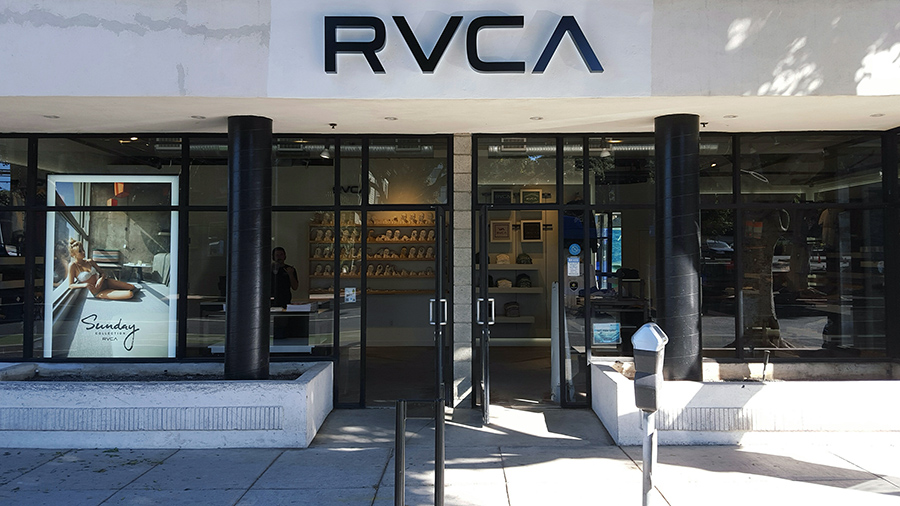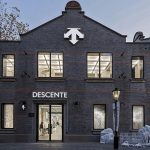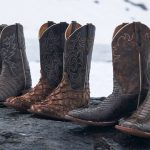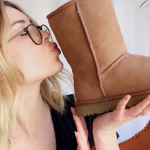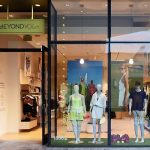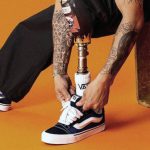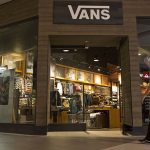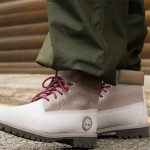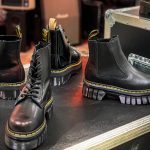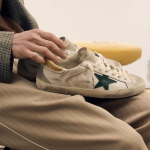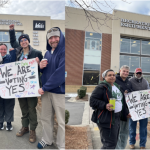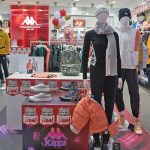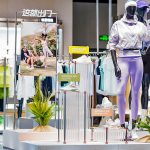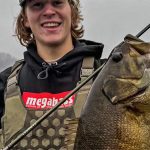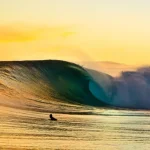Liberated Brands LLC, the former licensing arm for Authentic Brands Group’s collection of action sports lifestyle brands, has filed for Chapter 11 bankruptcy protection in the U.S. Bankruptcy Court for the District of Delaware. The initial filing was executed on Sunday, January 2, with additional documents filed on Monday, January 3.
The move is not surprising given that Authentic pulled its brands from Liberated and re-assigned them to other partners after Liberated failed to make royalty payments, according to Court documents.
In a declaration filed along with the Chapter 11 petition, Liberated CEO Todd Hymel revealed that the company owes $83 million in secured debt and $143 million in unsecured debt, including $15 million from a promissory note, $78 million in trade claims and about $50 million in unpaid royalties under brand licensing agreements.
Liberated said it is looking to sell parts of its operations and wind down other areas after facing a drop in consumer demand plus macroeconomic headwinds in the years following the height of the COVID-19 pandemic.
“The debtors intend to promptly file a Chapter 11 plan that will enable the debtors to conclude the orderly and expeditious monetization of their assets and make distributions to creditors,” Hymel said in the declaration.
The company, which had operated a range of brands under a licensing deal with Authentic Brands Group LLC that started with the acquisition of the Volcom brand, said it will also seek to sell its international businesses and has closed its corporate offices and laid off nearly 1,400 employees. Last month, the company started to liquidate stores under a deal with Gordon Brothers.
Authentic acquired the Volcom brand from Kering S.A. in April 2019. Authentic and members of the former Volcom management team, including current CEO Todd Hymel and COO/CFO Brad Holman created Liberated Brands Group as the Volcom operating company at the time to facilitate the licensing deal.
Kering, the French luxury powerhouse that owns Gucci, Ives Saint Laurent, Balenciaga and many other luxury brands, owned Puma at the time and envisioned a sport fashion segment. Kering acquired Volcom in 2011.
Similar to the operating structure created when it acquired Aéropostale, Authentic took a minority stake in Liberated Brands, at the time. Todd Hymel and Volcom’s current management team have taken the majority stake in Liberated Brands and will maintain the Volcom operations based in the U.S., France, Australia and Japan with continued oversight of the brand’s product development, athlete marketing and its retail and wholesale businesses worldwide.
Liberated secured the license for Spyder in July 2021.
Authentic acquired most of its action sports brands when it acquired Boardriders, Inc. (fka Quiksilver, Inc.) on September 1, 2023, which included the Quiksilver, Billabong, Roxy, RVCA, DC Shoes, Element, VonZipper, Honolua, and Boardriders brands, and each of the brands were licensed to Liberated later that month.
Hymel revealed in a filing declaration that the Boardriders Transaction was completed in two stages. First, in September 2023, HLB Group Holdings LLC (“HLB”) made an initial investment to assist Liberated in the acquisition of the brands contemplated in the U.S. Boardriders Transaction, bringing its ownership of Debtor Liberated Brands LLC to a near-majority. Second, in December 2023, HLB made an additional investment to support Liberated’s consummation of the Australian Boardriders Transaction. As a result, HLB became the majority owner of Liberated Brands LLC.
The licensee continued to expand its responsibilities, taking on Asia and added the Australia, New Zealand, Thailand, and Indonesia regions for the former Boardriders brands in late 2023.
The company was selling product at 400 stores worldwide, including 124 in the U.S., according to the declaration.
The company made a motion on January 3, requesting joint administration of all cases related to Liberated, including:
- Boardriders Retail, LLC
- Liberated AX LLC
- Liberated Brands International, Inc.
- Liberated-Spyder LLC
- Volcom, LLC
- Volcom Retail, LLC
- Volcom Retail Outlets, LLC
- Liberated Brands USA LLC
- Liberated Brands LLC
What Went Wrong?
Liberated’s revenue grew by 20 percent between 2021 and 2022, fueled by a post Covid jump in retail sales. Hymel said sales increased from $350 million in annual revenue to $422 million.
But a confluence of changing consumer behavior, cooling demand, high interest rates and inflation ate into its profits.
In 2022, Liberated’s earnings before interest, taxes, depreciation and amortization, or EBITDA, was $2.3 million. By 2024, it plunged to negative $12.5 million, a more than 600 percent decline over the course of two years, Hymel said.
Hymel said Liberated in 2024 began looking for a potential buyer of the business and took cost-cutting steps — like implementing a hiring freeze, laying off 47 workers and negotiating payment plans with trade vendors — to save money. In November, it divested its North American assets for Spyder-branded gear.
The company wasn’t able to drum up new funding or find a buyer, and by the end of 2024 was on shaky terms with some vendors that hadn’t been paid.
Company management believed the trend would diminish last year but in the past 18 months “the average consumer has shifted their spending away from discretionary products such as those offered by Liberated,” Hymel asserted. The business was also said to be hurt by a shift to large “fast-fashion” retailers [i.e. Forever 21, H&M] that can sell product at lower prices and capitalize on so-called micro-trends as opposed to the traditional seasonal retail model.
“Consumers can cheaply, quickly, and easily order low-quality clothing garments from fast-fashion powerhouses and have such goods delivered within days,” Hymel noted.
Authentic in December terminated Liberated’s North America license for the wholesale businesses of Volcom, RVCA and Billabong after the company failed to make a royalty payment, according to court documents. The license rights to those brands were subsequently transitioned to new operators, Hymel said.
In connection with this termination, Liberated’s United States and Canadian wholesale and e-commerce license rights with respect to those brands were transitioned to new operators, with Liberated retaining a limited right to sell through prior-season branded inventory (subject to certain restrictions). Hymel wrote that, compounding an already dire liquidity situation, vendors began holding back in-transit inventory towards the end of December 2024 and continuing into January 2025, as well as pending inventory shipments for the spring 2025 season, reducing the Debtors’ borrowing base under their Prepetition ABL Facility by more than $10.0 million.
The declaration went on to note that due to their business and financial issues, and coupled with the Debtors’ reduced borrowing base, JPMorgan Chase Bank, N.A., the agent under the Prepetition ABL Facility (the “Prepetition ABL Agent”), implemented reserves and the Debtors became over-advanced under their Prepetition ABL Facility by approximately $3.5 million around mid-January 2025 and approximately $6.0 million in late-January 2025.
Faced with drastically diminished prospects to operate as a going-concern, and without access to cash receipts due to the over-advance under the Prepetition ABL Facility, the Debtors said they accelerated negotiations with the Prepetition ABL Agent regarding further advances under the Prepetition ABL Facility and a consensual and value-maximizing disposition of the Debtors’ assets.
Following extensive arm’s-length negotiations, the company said the Debtors and the Prepetition ABL Agent reached an agreement for the Prepetition ABL Agent to provide a $35.0 million new-money DIP ABL Facility (as defined herein) to fund the Chapter 11 Cases and the Debtors’ ongoing efforts to monetize their assets in an orderly, efficient, and value-maximizing process.
Liberated decided to file for Chapter 11 after consulting with its ABL lenders. It closed its corporate headquarters in December and laid off 1,390 workers, according to the declaration.
The company is running store-closing sales managed by Gordon Brothers in the U.S. and plans to liquidate existing branded inventory under a license extension negotiated with Authentic and wind down its North American operations. It will also look for a buyer of its Australian, European, Japanese and Canadian business units in Chapter 11.
A spokesperson for Authentic Brands Group or Liberated Brands Group did not respond to requests for additional information prior to press time on Monday.
Liberated Brands is represented by Domenic E. Pacitti, Michael W. Yurkewicz and Morton R. Branzburg of Klehr Harrison Harvey Branzburg LLP and Joshua A. Sussberg, Matthew C. Fagen, Zachary R. Manning and Robert Jacobson of Kirkland & Ellis LLP.
Image courtesy RVCA/Authentic Brands Group

